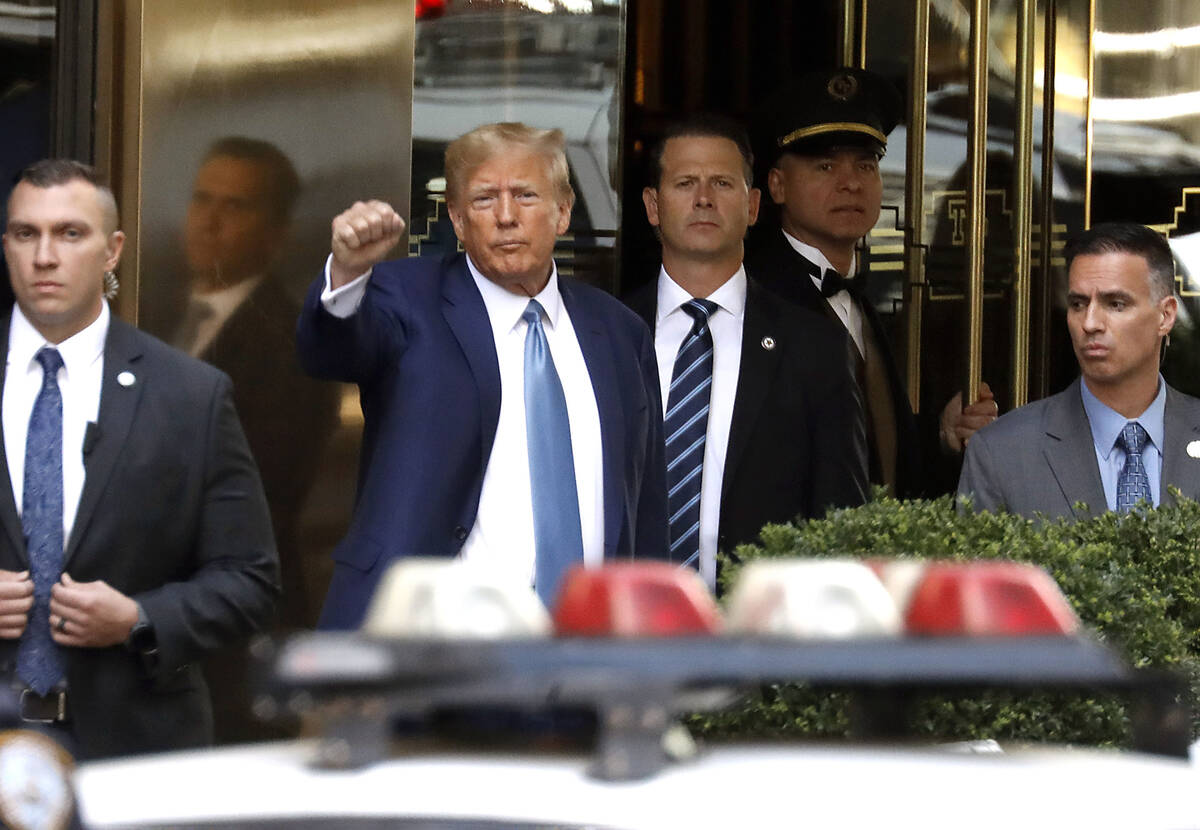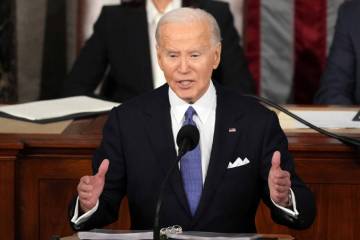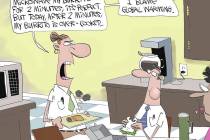CLARENCE PAGE: The busting of the myth of Donald Trump’s business genius
How embarrassing. Donald Trump’s well-known history of financial exaggeration appears to be catching up to him in a very inconvenient place, a courtroom.
After years of his colorful boasts about his wealth and financial savvy, Trump’s own lawyers delivered the news to the judge that he doesn’t have the funds to pay the judgment from a recent civil ruling in New York.
If financial stories make your eyes glaze over as much as they often do mine, consider this simple political question: How much will the Republican presidential candidate’s legal and financial woes matter to his voters?
Last fall, New York Judge Arthur Engoron found Trump liable for fraud and ordered him to pay a penalty that now sits at $454 million. On Monday, his legal team said that mighty sum was so high that it would be a “practical impossibility” for the former president to pay.
In other words, Trump doesn’t have enough money to pay what he owes. New York Attorney General Letitia James, about whom Trump has had no kind words, brought a civil fraud lawsuit against Trump in 2022, accusing him and others in the Trump Organization of a long-running scheme in which he and his company inflated their net worth and the value of their assets in order to obtain more favorable business loans.
This was a surprise. Not that Trump exaggerated his wealth, but that he was admitting he was less than superhuman.
Trump has a reputation for telling tall tales about things that don’t even call for it. The Republican who would be president has been accused of exaggerating the number of floors in New York’s Trump Tower, inflating his own height by an inch and — responding to the suggestions on the Republican primary debate stage in 2016 that he has abnormally short fingers — that he had other parts of his anatomy that were just fine.
That was Trump the entertainer, a persona that won him the hearts of many Americans, not just Republicans, for puncturing the usual stuffiness of such events.
As Trump said by way of explaining his sales success to a Forbes reporter in 2016, maybe people want to be fooled. “People are very happy,” Trump said. “They like to have apartments that have height, the psychology of it.”
I wondered about that back in 2016 when I first read reports of his exaggerating the height of and floor space in Trump Tower. That seemed harmless, though. Nothing close to the drama these days in a New York courtroom. Maybe people in some circumstances do like to be duped. That certainly explains some of the goofier choices I’ve seen voters make in some elections.
For now, Trump continues his legal fight in New York and characterizes the lawsuit as a political “witch hunt” by James. Compared with his four criminal indictments and more than 90 counts, it seems like business — or Trumpian politics — as usual.
But this time, the exposure of his financial shortcomings appears to bring extra pain to Trump, who hasn’t been showing much comfort with this case anyway.
It does little good for his own pride and reputation to be revealed as a mortal who unsuccessfully approached 30 surety firms to issue bonds to satisfy the court’s demands for upfront payment while Trump appeals. We’ve already seen that most U.S. banks won’t do business with Trump.
We’ve also seen Trump’s presidential campaign struggle to raise money from well-heeled donors, in part apparently because those money folks don’t want their donations used to pay Trump’s legal fees, according to The New York Times.
The question is whether these blows to the myth of Trump’s financial prowess and wherewithal will hurt him on the campaign trail. If paying hush money to a porn star didn’t do it, it’s hard to see how this will.
Contact Clarence Page at cpage@chicagotribune.com.




























